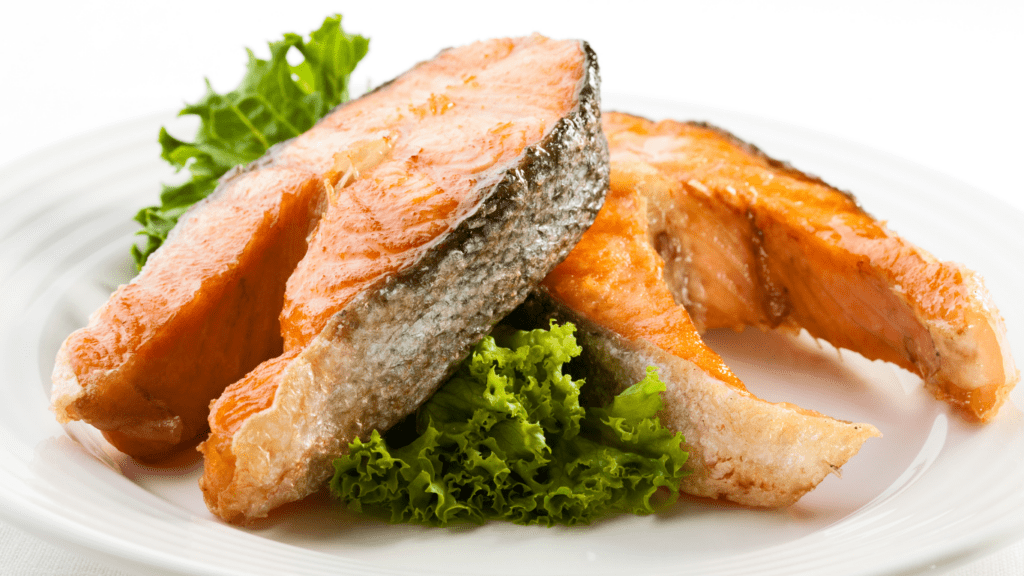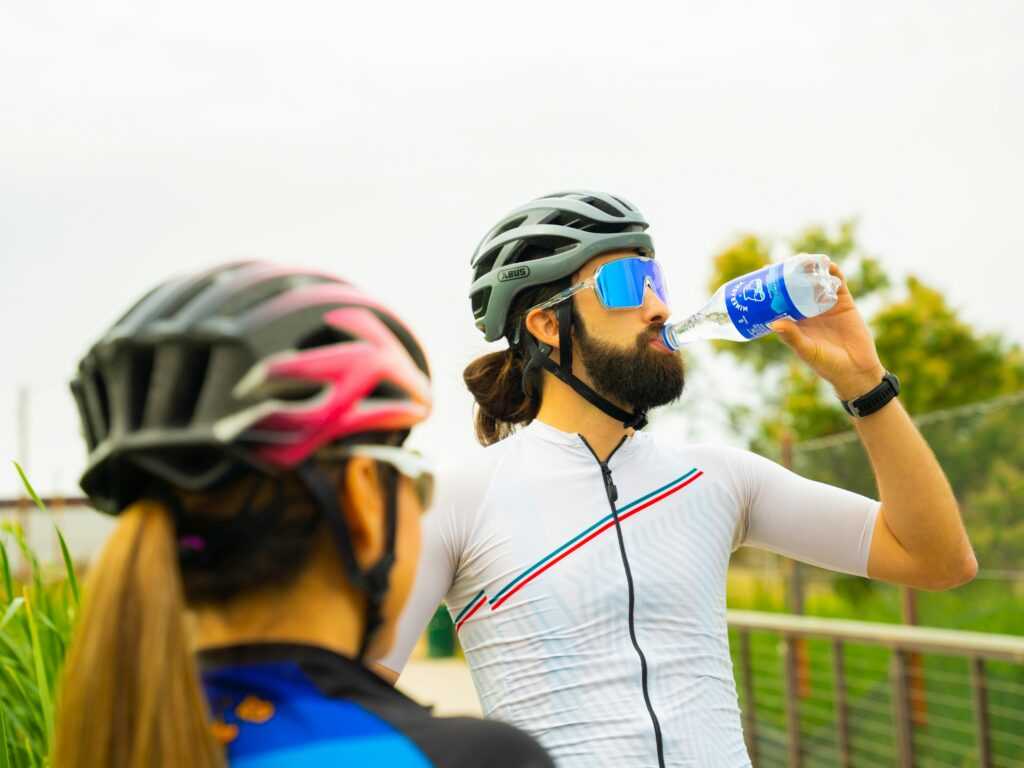Understanding Cycling Nutrition
Cycling demands specific nutritional strategies to optimize performance and recovery. Proper intake of vitamins and minerals can make a profound difference.
The Importance of Nutrition in Cycling
Nutrition directly impacts a cyclist’s endurance, power, and recovery rates. Adequate nutrition fuels muscles, stabilizes energy levels, and prevents fatigue.
Consuming balanced meals rich in carbohydrates, proteins, fats, vitamins, and minerals ensures that the body has the necessary resources for prolonged, intense rides. A well-planned diet can enhance efficiency and reduce the risk of injuries.
How Vitamins and Minerals Impact Performance
Vitamins and minerals contribute significantly to a cyclist’s performance by supporting various bodily functions:
- Energy Production: B-vitamins, such as B1 (thiamine), B2 (riboflavin), B3 (niacin), B6, B12, and folate, play a crucial role in converting food into energy.
- Muscle Function: Magnesium and calcium are essential for muscle contractions and relaxation. Deficiency can lead to cramps and decreased performance.
- Oxygen Transport: Iron is vital for hemoglobin production, which transports oxygen to muscles. Insufficient iron can cause fatigue and impair endurance.
- Antioxidant Protection: Vitamins C and E protect muscles from oxidative stress and aid recovery. Selenium and zinc also contribute to the body’s defense against free radicals.
- Hydration and Electrolyte Balance: Sodium, potassium, and chloride maintain fluid and electrolyte balance, crucial for staying hydrated during long rides.
Consuming a varied diet rich in fruits, vegetables, whole grains, lean proteins, and healthy fats can help meet these nutritional needs. Supplements might be necessary if dietary intake is insufficient or if specific deficiencies are identified.
Essential Vitamins for Cyclists

Maintaining optimal levels of vitamins, crucial for cyclists, enhances performance and recovery.
Vitamin D for Bone Health and Immune Function
Vitamin D, essential for cyclists, supports bone health by aiding calcium absorption. Strong bones can withstand the physical strain of cycling.
Additionally, Vitamin D enhances immune function, helping cyclists avoid illness. Vitamin D synthesis occurs with sun exposure; however, food sources like fortified milk, fatty fish, and supplements may be necessary, especially in low sunlight conditions.
Vitamin C for Tissue Repair and Immunity
Vitamin C, vital for cyclists, plays a significant role in tissue repair and maintaining a robust immune system. Tissue repair is critical after intense training sessions to prevent injuries.
Additionally, Vitamin C acts as an antioxidant, combating oxidative stress from prolonged rides. Rich dietary sources include citrus fruits, bell peppers, and broccoli, ensuring adequate intake for recovery and immunity.
B Vitamins for Energy Metabolism
B Vitamins, including B6, B12, and folate, are crucial for cyclists due to their role in energy metabolism. These vitamins help convert carbohydrates, fats, and proteins into energy efficiently.
B12 supports red blood cell formation, enhancing oxygen transport to muscles during rides. Good sources include whole grains, eggs, and lean meats; taking supplements might be necessary for those on restricted diets.
These vitamins contribute significantly to cycling performance, recovery, and overall health, underscoring the importance of a nutrient-rich diet.
Key Minerals in a Cyclist’s Diet
Cycling demands attention to several essential minerals to maintain peak performance and health.
Calcium and Magnesium for Muscle Function
Calcium supports muscle contraction and bone strength, vital for cyclists experiencing high-impact training. A daily intake of 1,000 mg calcium, sourced from dairy products and leafy greens, meets this need.
Magnesium relaxes muscles and prevents cramps. Cyclists benefit from 400-420 mg magnesium daily, obtained from nuts, seeds, and whole grains.
Iron for Oxygen Delivery
Iron plays a crucial role in oxygen transport to muscles, directly affecting cycling endurance. Athletes often risk iron deficiency due to high training volumes.
Male cyclists require 8 mg of iron daily, while female cyclists need 18 mg due to menstrual blood losses. Include lean meats, beans, and fortified cereals to reach these levels.
Electrolytes for Hydration
Electrolytes like sodium, potassium, and chloride balance fluids and prevent dehydration during long rides. Cyclists lose these minerals through sweat, risking cramps and decreased performance.
Sodium intake ranges from 1,500-2,300 mg daily, with potassium needs at 2,500-3,000 mg. Replace electrolytes with sports drinks, bananas, or oral rehydration solutions.
These minerals ensure cyclists sustain energy, recover efficiently, and avoid deficiencies. Always tailor diet plans to individual needs and consult professionals when necessary.
Practical Tips for Integrating Nutrition into Training
Cyclists need to focus on their nutritional habits to maximize training benefits. Strategic intake of vitamins and minerals ensures sustained energy and optimal performance.
Planning Nutrient-Dense Meals and Snacks
Planning balanced meals and snacks supports consistent training include:
- variety of colorful vegetables
- lean proteins like chicken and fish,
- complex carbohydrates such as whole grains
- sweet potatoes
- healthy fats from avocados and nuts
Incorporate foods high in essential vitamins and minerals, like citrus fruits for Vitamin C and leafy greens for Iron. Prepare meals in advance if time constraints exist, ensuring access to nutritious options daily.
Timing of Nutrient Intake Around Training Sessions
Nutrient timing enhances workout effectiveness. Consume a carbohydrate-rich snack like a banana or yogurt 30-60 minutes before training for quick energy.
Post-training, eat a meal with a 3:1 ratio of carbohydrates to protein within two hours to aid muscle recovery. Utilize electrolytes during and after long rides to maintain hydration and prevent cramps, with options like sports drinks or coconut water.

 I’m Brendamee McCartyierr, and as the founder of Cycle Smooth Ride Long, I'm thrilled to bring you the ultimate resource for all things cycling. Whether you're a seasoned rider or just starting on your cycling journey, our mission is to support your passion for two wheels with trusted advice, insightful reviews, and expert tips.
Cycling is more than just a hobby—it's a lifestyle that promotes health, freedom, and adventure. At Cycle Smooth Ride Long, we’re committed to making your ride smoother, longer, and more enjoyable by providing you with the latest in cycling news, nutrition advice, fitness tips, and gear reviews. We also cater to beginners, offering comprehensive guides to help you get started and build confidence on the road.
I’m Brendamee McCartyierr, and as the founder of Cycle Smooth Ride Long, I'm thrilled to bring you the ultimate resource for all things cycling. Whether you're a seasoned rider or just starting on your cycling journey, our mission is to support your passion for two wheels with trusted advice, insightful reviews, and expert tips.
Cycling is more than just a hobby—it's a lifestyle that promotes health, freedom, and adventure. At Cycle Smooth Ride Long, we’re committed to making your ride smoother, longer, and more enjoyable by providing you with the latest in cycling news, nutrition advice, fitness tips, and gear reviews. We also cater to beginners, offering comprehensive guides to help you get started and build confidence on the road.
